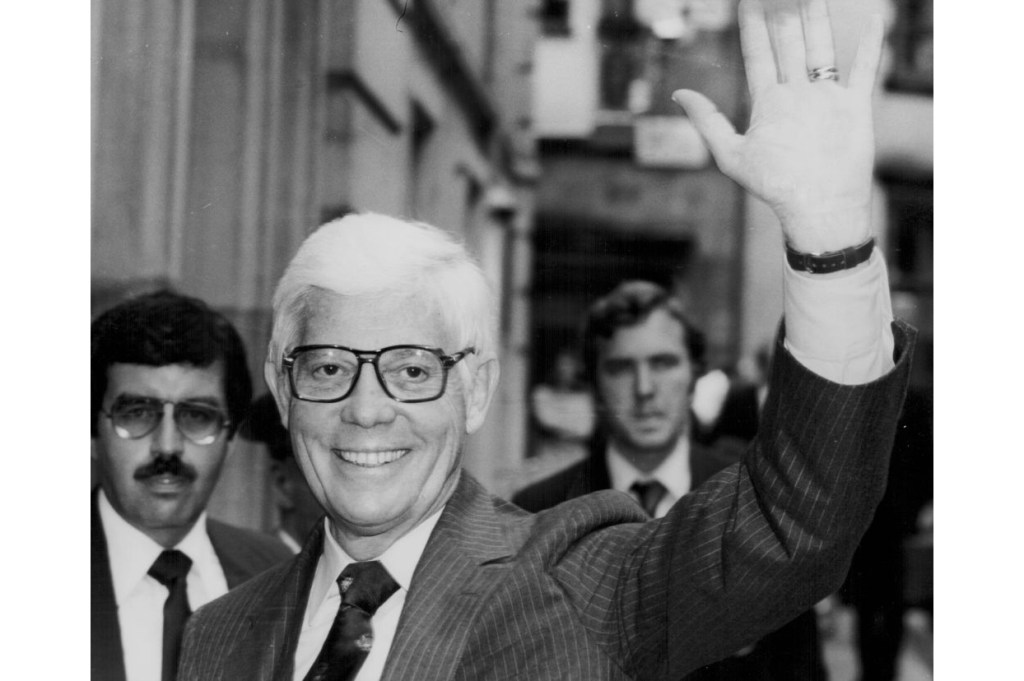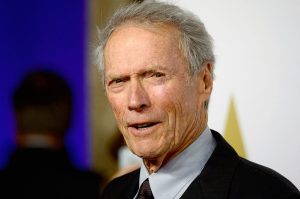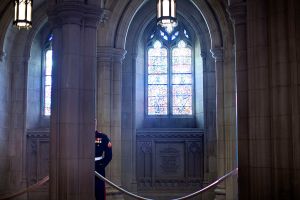Batavia, New York
It’s not my alma mater, but the Electoral College and I have a history.
There I was, a callow lackbeard of 20 years, clanging jumpers off the rim of our driveway basketball hoop, lost in ridiculous reveries of Electoral College kingmaking, of displaying steel-spined rectitude, of rejecting the cajolery and outright bribery of tawdry political machines as if I were a virtuous Mugwump of the Gilded Age.
You see, I was, in 1980, a presidential elector for the sanctimonious reform liberal John Anderson, the Illinois Republican congressman running on an independent line against Democratic incumbent Jimmy Carter and Republican candidate Ronald Reagan. I had achieved electorhood quite by accident: in the spring, as Anderson was testing the waters for a third-party bid, I’d gone to an informational meeting in Buffalo, interested, as ever, in spasms of revolt against the duopoly. I inked my name to a sign-up sheet. Shortly after, I received a frantic call asking if I’d consent to serve as an Anderson elector; mine, apparently, was the only address the campaign had from my congressional district, and the deadline for submitting names was nigh. Well, I figured, why not?
That’s when the fantasies kicked in.
Anderson was polling upwards of 25 percent in New York before the inevitable third-party nosedive. I imagined him winning the state, as well as others, and preventing Carter or Reagan from achieving a majority in the Electoral College. Then the tempters would come a-calling, dangling before my greedy eyes visions of plum sinecures, if not sugar plums, in exchange for my vote, but I, exuding honor from every pore, would rebuff them sternly. Or perhaps I’d incite a stampede to some compromise candidate.
It was all about as likely as my free throw deciding the NBA championship, but dreams are free to a foolish kid shooting baskets in a driveway located deep in the heart of a powerless province.
Alas, I was expelled from the good ole Electoral College before I was even admitted. Anderson faded, his showy sciolism proving as tiresome to voters as it had to his congressional colleagues. Politico-like, he cut a late deal with New York’s peccable Liberal party to accept its endorsement, which meant an unceremonious kick to the curb for our independent electoral slate.
But wayward electors would run in our family. Lucine, whom I married less than a decade after my unrequited flirtation with history, had worked for and befriended the USC philosophy professor John Hospers, the Libertarian party’s first presidential candidate. Professor Hospers had tallied a single electoral vote in 1972, when rogue Virginia elector Roger MacBride, adoptive heir to the Little House on the Prairie fortune, bolted Nixon and cast a quixotic ballot (the only ballot worth casting) for Hospers and running mate Tonie Nathan, the first woman ever to tally a vote in the EC.
MacBride had, in 1953, published The American Electoral College, a little book championing the excellent ‘district system’, currently in use in Maine and Nebraska, under which electors are awarded by congressional district, with two bonus electors for the winner of the state. He also defended the ‘faithless elector’ who votes for a candidate other than the one to whom he is ostensibly pledged. Evidently the Virginia Republican party’s crack research staff failed to browse MacBride’s book before appointing him a Nixon-Agnew elector in 1972. And MacBride, in turn, gave Hospers the surprise of his life.
The district system would encourage candidates to campaign in states currently ceded to the other party, such as, well, New York. Alas, its adoption is as likely to happen as Donald Trump taking for his fourth wife a Somali charwoman. For New York, under the knee-to-the-groin governorship of Andrew Cuomo, is crushing any and all outposts of dissent to our two-for-the-price-of-one party system.
In the latest outrage, an unelected state commission has imposed regulations that will essentially banish from the ballot Greens, Libertarians and any other doughty underfunded challengers to the status quo. The sheer unfairness, the contempt for democratic norms, is brazen, and begs a response well beyond the filing of futile lawsuits. The ruling class always seeks to channel discontent down narrow, confined alleys of controlled protest. But what happens when even these straitened lanes are blocked?
I suppose we’re gonna find out. But I doubt that today’s dreamy duopoly-hating youths are spinning Electoral College fantasies as they dribble. The kindling is stacking higher and higher, and I’m not sure I want to see the fire next time.
This article is in The Spectator’s February 2020 US edition.


















